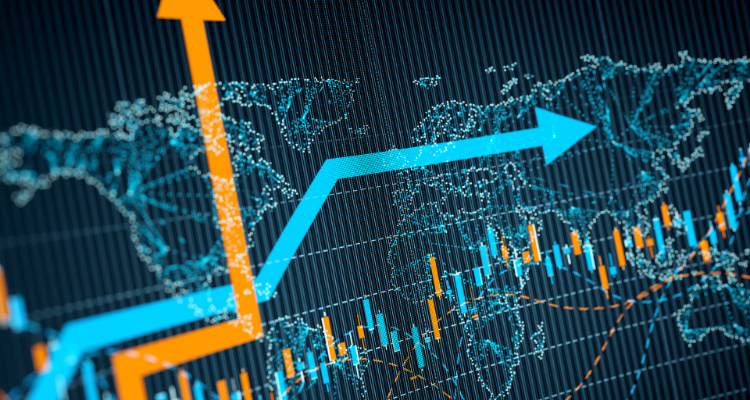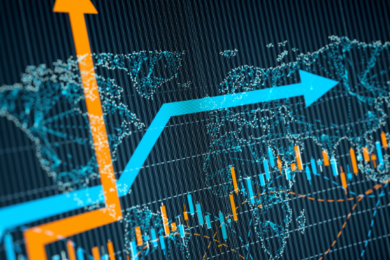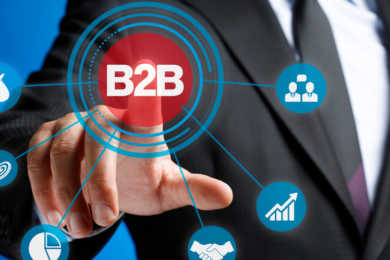Five Marketing Predictions for 2025
Jan 2, 2025By this point, most marketers have become accustomed to the never ending whirlwind of change and evolution in the digital…

By this point, most marketers have become accustomed to the never ending whirlwind of change and evolution in the digital landscape. After all, the last two years alone have seen some of the biggest transitions in digital trends over the last decade.
We’ve had an endless onslaught of search engine algorithm updates, the implementation of key laws around data privacy, as well as the rise, fall and resurrection of X (formerly Twitter).
That’s just the tip of the iceberg. All of the above have only been exacerbated by the ever-growing capabilities of AI and LLMs, monumental shifts in consumer behaviour, primarily driven by the continued dominance of short form video content, and all of this is happening while the SERPs can’t seem to decide what they want to wear.
From a metaphorical perspective, if digital marketing in 2023/24 was a long haul flight, then the seatbelt sign would need to be on the entire time.
It’s been eventful to say the least, and if early forecasts are anything to go by then 2025 is looking like more of the same. Below, we’ve put together our five marketing predictions for 2025, anticipating trends that will shape the future landscape of digital marketing.
Artificial intelligence has already altered the face of digital marketing and its influence is only set to grow. By 2025, the use of AI in content marketing, campaign optimisation and analytics will become the industry standard.
Many marketing experts have already embraced AI in one form or another, utilising the likes of ChatGPT, Gemini or Jasper to handle time-intensive tasks, analysing consumer behaviour and even supporting copy writing.
AI can be extremely useful for optimising campaigns, refining ad targeting and identifying potential improvements in real time. It’s also capable of handling advanced personalisation tasks, delivering AI-powered segmentation that provides marketers with deeper customer insights, ensuring hyper-personalised customer journeys.
Not only that, AI is a valuable time saving tool, automating repetitive tasks and allowing marketers to add a human touch to the final output.
So what does this mean for marketers in 2025? Well firstly, if you aren’t already using AI in your digital marketing, it may be time to familiarise yourself with some AI powered tools and platforms, or risk getting left behind.
Realistically, as it continues to become more and more sophisticated, upskilling in artificial intelligence is a way of future proofing your marketing practices.
Just remember one crucial rule, becoming proficient in using AI, does not mean becoming dependent on it. The perfect balance is using AI to complement human creativity, not replace it.
Consumers now demand seamless online experiences. A cluttered website or slow-loading page will impact not only your user retention but also your rankings on search engine result pages (SERPs).
Google continually highlights UX and helpful content as key ranking factors in all of its recent algorithm updates, with a major focus on mobile first experiences.
This means that by 2025, having good keywords and a strong backlink profile may not translate directly to good SEO performance as user UX and helpful content becomes the main focus.
Users expect fast, seamless and intuitive navigation. A clunky website doesn’t just frustrate, it also ensures a low engagement rate, negatively impacting your SEO efforts. Focus on seamless user experience, core web vitals and mobile performance as these will directly impact your rankings in the SERPs and in turn, your brand visibility.
The rise of smart speakers and voice assistants such as Alexa, Siri, and Google Assistant is transforming the way consumers search for information. By 2025, voice search could represent a significant portion of all online searches.
Unlike typed queries, voice searches are more conversational and often posed as full sentences or questions. For example, instead of “best Italian restaurants London,” voice users might ask, “Where can I find the best Italian restaurant near me?”
Now that these voice-activated devices are ingrained in our daily lives, marketers are required to optimise their content for voice queries.
Conversational keywords and FAQ style content that mirrors natural language will be key to ranking well in voice search results, offering new opportunities for brands to engage with consumers in a more conversational and intuitive way.
Video already dominates digital marketing, with countless businesses already benefiting from going ‘viral’. By 2025, its importance will surge even further.
Platforms like TikTok, YouTube Shorts and Instagram Reels are changing the way that users consume content and the ways they interact with brands.
However, these platforms now extend beyond social engagement, they are becoming powerful eCommerce platforms, with the social commerce market in the UK projected to be worth nearly £16 billion by 2028, which is more than double its current value of £7.4 billion
In 2025 social commerce will redefine the online shopping experience, seamlessly integrating product discovery, recommendations and transactions within social media platforms.
If your brand is hoping to leverage the full potential of social commerce and stay ahead in the evolving landscape, marketers should adopt the following strategies –
This has become one of the biggest challenges faced by digital marketing professionals in recent times.
Consumers value tailored experiences, but privacy regulations like GDPR and evolving societal expectations around data handling are making personalisation more complex. By 2025, the battle between personalisation and privacy will demand even more delicate balancing.
Brands must find innovative ways to deliver customised user experiences, while respecting customer concerns about data privacy. First-party data (information you collect directly from your audience) is expected to become the most valuable asset for marketers.
Transparency and consent management will be paramount, building trust with consumers and establishing meaningful connections based on mutual respect.
By 2025, digital marketing in the B2B sector will no longer be about just keeping up, it will be about setting the pace.
To remain competitive, marketers must invest in future-driven technologies, refine their skills and place customer trust at the core of everything they do.
So, if you’re ready to grow your brand in 2025, connect with our team today to explore tailored strategies that will future-proof your marketing efforts. Together, we’ll help your brand stand out and thrive in an evolving digital world.

By this point, most marketers have become accustomed to the never ending whirlwind of change and evolution in the digital…

The chemical industry is evolving rapidly, driven by technological advancements, sustainability demands and shifting market dynamics. To stay ahead, companies…

We’re working in an incredibly exciting time for SEO, driven by advancements in technology and the ability to harness powerful…

On the 10th July, 2025, Instagram posts will become visible in Google search results, creating unique opportunities for savvy businesses…